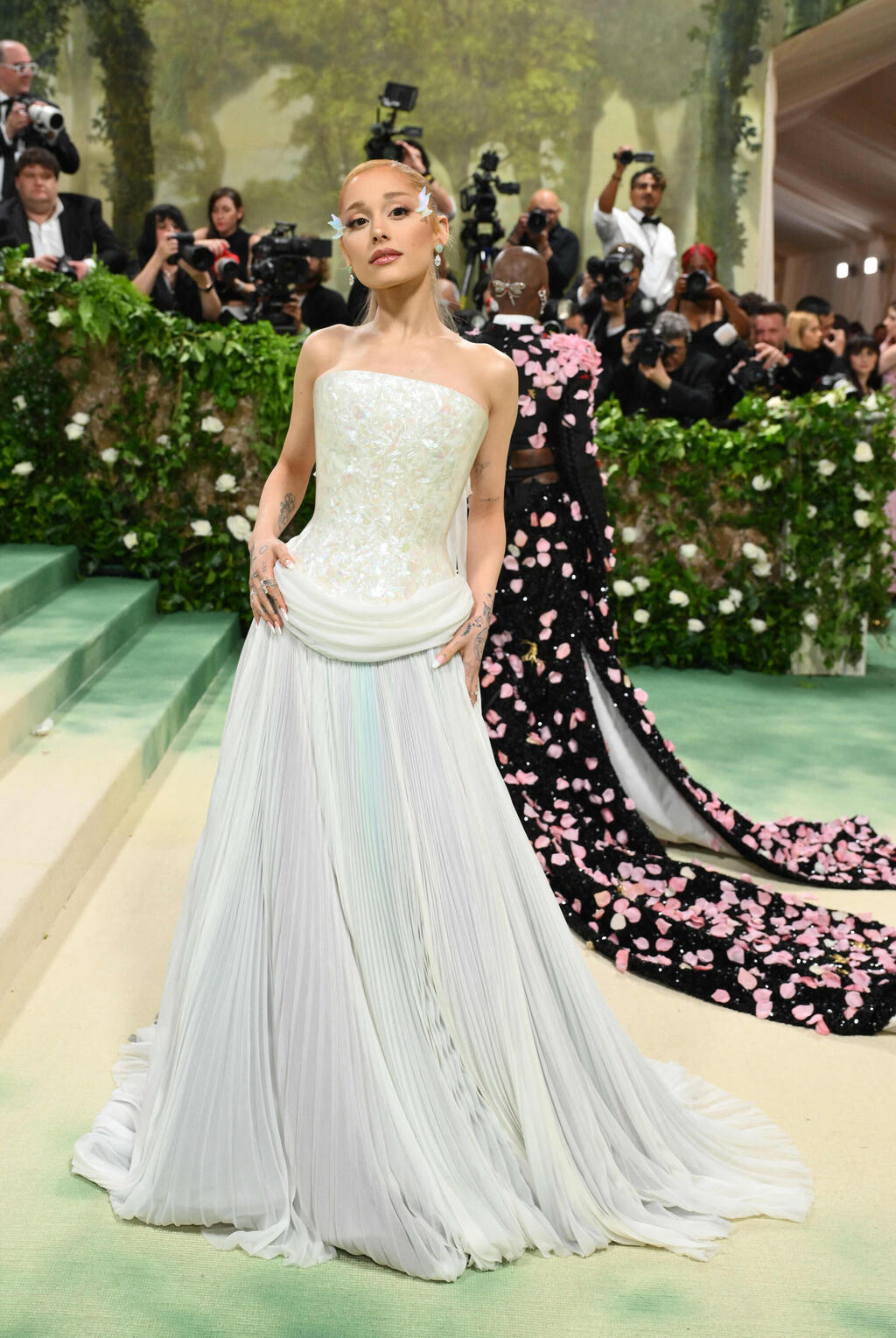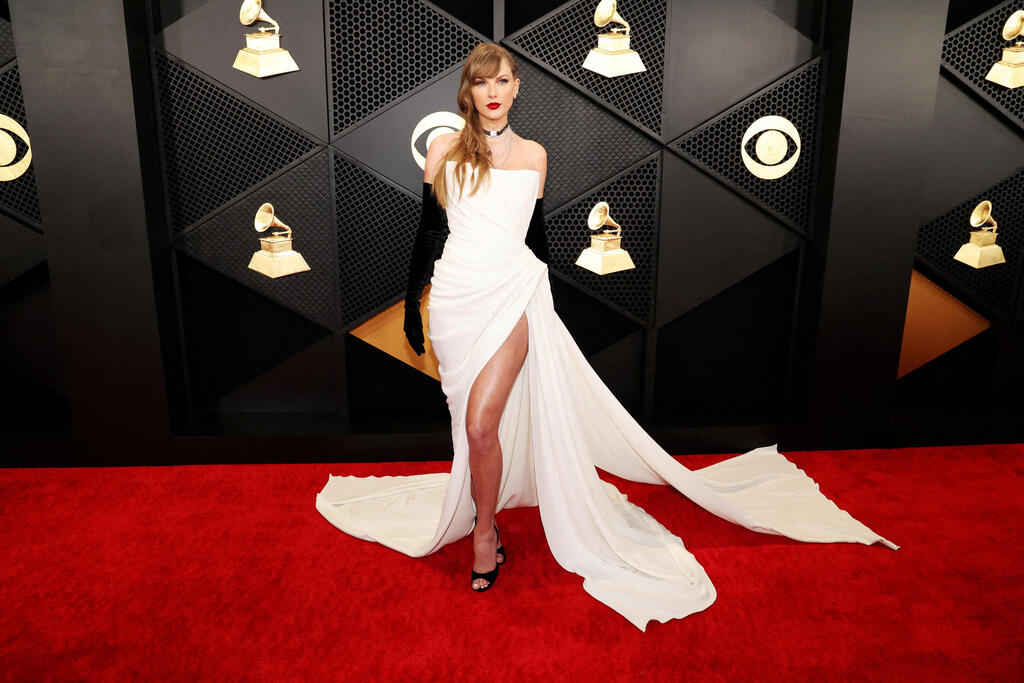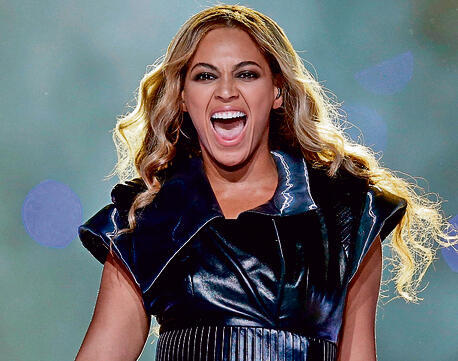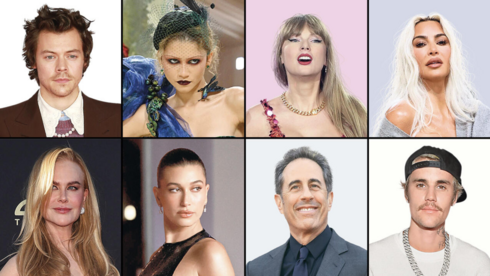The Met Gala is considered the most prestigious haute couture event New York City has to offer. Held two weeks ago, it was a truly glamorous event hosted by fashionistas Beyoncé and Zendaya.
3 View gallery


Ariana Grande in stunning dress at Met Gala
(Photo: AFP)
Under normal circumstances, this would be an anecdote about American celebrities emulating Marie Antoinette's lavish lifestyle while Palestinians die in Gaza. But while TikTok is dictating the global agenda, photos from the glitzy Upper East Side party have been circulating alongside photos from Gaza.
A controversial Met Gala video has sparked a new kind of protest against the world's biggest stars who have not expressed support for the Palestinians. Activists have begun blocking or unfollowing celebrities' social media accounts in an effort to damage their visibility, exposure, and ultimately their income. All social media platforms allow users to mute or block accounts.
Blocking a celebrity or influencer's account means you won't see any content they generate on social media, including posts, photos, videos, and collaborations with sponsors. The campaign says the campaign targets the bank accounts of celebrities who are not doing enough for Palestinians, as the number of people who view this content translates into the income of Hollywood's biggest stars.
Activists are calling on celebrities to take a stand against Israel and in favor of Palestinians in the Gaza war. For some reason, the blacklisted stars are not those who have expressed support for Israel, but mainly those who have so far remained silent and have not mentioned the war at all. Celebrities affected include Beyoncé, Taylor Swift, Justin Bieber, Kim Kardashian, Nicole Kidman, Harry Styles, Zendaya and Hailey Bieber.
Hours after the Met Gala, the hashtag Blockout2024, started by an anonymous user using the same name, appeared on TikTok. Through this hashtag, users popularized the idea of blocking some of the world's biggest celebrities, including Taylor Swift, Kim Kardashian, Beyoncé, and Justin Bieber. In a video that has been viewed more than 1 million times, he said, “We have total control over the income of news organizations, celebrities, artists. They make money on hate, they make money on our admiration. They make money when we block them and forget their names. ”
3 View gallery


Taylor Swift unaffected by blockout
(Photo: Reuters)
Blockout2024 uploads new videos containing celebrity blocks of the day and encourages others to follow his lead. Another TikTok user joined the trend. “It's time to block all celebrities, influencers and wealthy socialites who don't use their resources to help people in serious situations,” she said in the video. “We gave them a platform. It's time to take it back and take our voices, likes, comments, and money.”
Jenny, a TikTok user from Vietnam, told news site New Arab that she was joining the campaign because of the “genocide happening in Palestine.” According to her, “I didn't understand the power of social media until I saw whole movements supporting Palestine, Congo, Sudan starting on TikTok. Especially among Gen Z, they're getting support. I am more sensitive to social issues because of the generation I identify with, so why do people go to lavish events that cost thousands of dollars when they are totally compassionate towards the fact that people are being bombed? I'm very angry about how I can put so much effort into participating in “Shards on the Other Side of the World.''
On the other hand, pressure mainly affects smaller influencers. Primarily a social media star and no more influential than that. Hailey Khalil, an American influencer with nearly 10 million followers on TikTok, posted an eight-minute apology video for uploading a clip of her performance at Coachella. The clip featured music from the movie Marie Antoinette, starring Kirsten Dunst, titled “Let Them Eat Cake.” Chris Olson, another influencer with more than 12 million TikTok followers, is also on many blocklists after posting a video about his involvement in efforts to help Palestinian families in need. Posted.
It's definitely understandable why young people on TikTok would boycott and try to silence celebrities to influence their social media activity. According to the CMO Survey, a leading marketing survey used to predict marketing trends, 74% of US internet users use social media. Marketing investments in social media are expected to increase by 126% over the next five years. From sports organizations to charities, everyone needs to use social media to reach a wider audience. While this is very beneficial, it is also a double-edged sword.
First, exposure remains the most important aspect of marketing, whether it's a product, a person, or an idea. The more a celebrity is in the public eye, the more fans remember them. Long gone are the days when we longed to meet celebrities who shunned the spotlight. This is something Taylor Swift completely changed. Social media makes celebrities seem more accessible, but this accessibility makes them more vulnerable. They can use social media to show that they are real and authentic, but they are also asked to voice their opinions on issues they may not have had to share before.
But the movement, dubbed the “digital guillotine,” is a very young protest movement that has so far failed to make an impact. No A-list star has yet significantly lost followers, prompting criticism from within the protest movement.
3 View gallery


beyonce
(Photo: Chris Gracen)
Last week, a Twitter user distributed an e-flyer with a long list of writers and authors, color-coded according to their stance on Israel and Palestinians, and a boycott recommendation for pro-Israel factions. Reaction was mixed, with some supporting the project, while others considered the movement anti-Semitic and akin to McCarthyism. Pro-Palestinian activists expressed concern that the tactic was not a strategy but a distraction from what was happening in Gaza.

